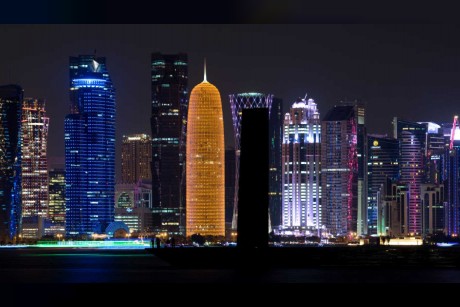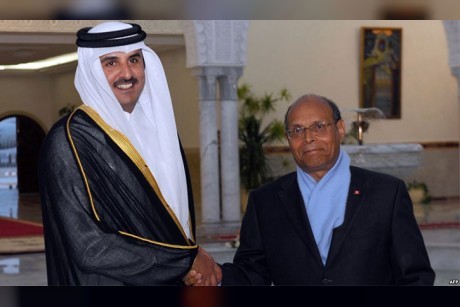The restructuring of the 21st century Middle East can more easily be understood by separating the countries that have chosen to embrace nationalism versus those that have doubled down on the doctrine of Islamic supremacism — known as Islamism.
U.S. Arab allies in Saudi Arabia, the United Arab Emirates, Bahrain, Egypt, Jordan, and others have collectively backed President Trump’s foreign policy doctrine, as expressed in his landmark Riyadh speech, in which he called upon regional partners to “drive out” the radicals in the Middle East and from within their own governments. Other paper allies, like Qatar and Turkey, have chosen to embrace those radicals, fund their revolutionary movements, and stir broader regional chaos.
Qatar has outright refused to embrace the regional nationalist movement. Instead, Doha continues to not-so-quietly abuse the sovereignty of its neighbours, meddle in their affairs, and incite Islamist rebellions throughout the entire region. Though Qatar claims to be a U.S. ally in good standing, evidence remains plentiful that the ultra-wealthy ruling family in Doha continues to harbor international terrorists, give major media platforms to anti-US hate preachers, and provide regular aid and support for U.S.-designated terrorist organizations. This is because Islamic supremacism remains the core ideology of Qatar’s ruling class. This developing nationalist-Islamist divide in the Gulf has acted to separate Qatar from its once-reliable regional partner and push the country even further into Iran’s orbit.
Yes, the rulers of Qatar are Sunni fundamentalists, while the mullahs in Tehran are Shia supremacists. But this is only a minor hurdle when compared to the higher-level competing ideologies of Islamist revanchism and reformist nationalism. Iran and Qatar remain ideologically linked through their shared principle of Islamic supremacism, and a shared disdain for the West and its values.
Qatar has consistently pushed back at the idea that Iran should face any economic sanctions over its support for terrorism. In May, Qatar’s foreign minister advised that “dialogue,” not sanctions, is the answer to the Iran issue.
Both Iran and Qatar have dedicated much of the past few years to sowing chaos across the Middle East. Iran, for its part, has launched direct attacks (through its proxies) against Arab nations. Iran’s Islamic Revolutionary Guard Corps and Hezbollah have accelerated the ongoing genocide in Syria. Yet, Doha has continued to insist upon closer relations with Iran.
The Middle East has separated into two primary ideological camps. To Qatar and Iran, Islamic supremacism — and not reformist nationalism — is the way forward for the region. Qatar has remained incredibly resilient in rejecting pressure from the US and its regional partners. It’s time we recognize that Qatar, by cozying up to Iran and its terrorist allies, has breached the point of no return.



